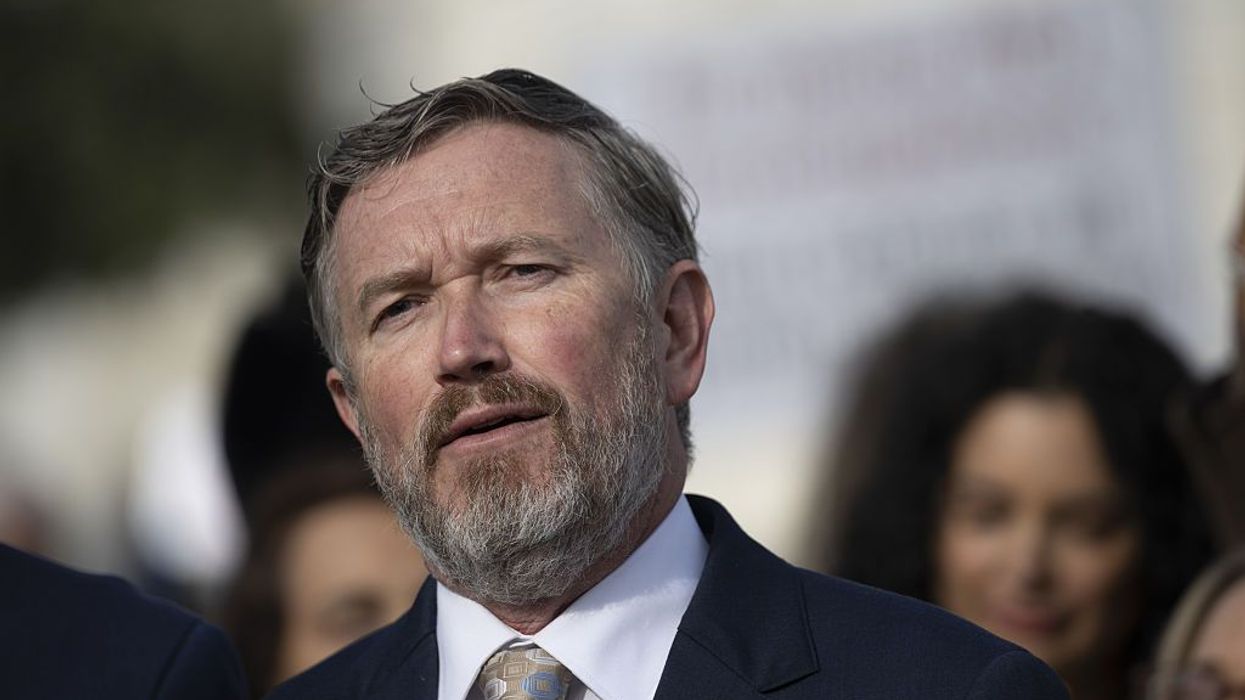With a March 20th deadline for moving their bill out of committee quickly approaching, fossil fuel divestment advocates are increasingly worried that behind-the-scenes industry lobbying is holding up the process.
The legislation in question is Senate bill S.1225, a bill sponsored sponsored by State Senator Benjamin Downing (D-Pittsfield), that directs the Commonwealth's Pension Reserves Investment Trust (PRIT) to divest its assets from fossil fuel companies within five years. PRIT manages $54 billion of which $1.3 billion is invested in the 200 fossil fuel companies that hold the largest amounts of coal, oil and gas reserves and are being targeted by the Go Fossil Free divestment effort.
"The impacts of unchecked climate change on the Massachusetts economy would be astronomical," said Jay Carmona, Divestment Campaign Manager with 350.org, an international climate campaign that is helping spearhead the divestment effort. "Fossil fuel divestment is a way for the Commonwealth to help address this crisis, insulate itself from a growing carbon bubble, and set an example for other states to follow. This is the right move both morally and financially."
Hampshire College in Amherst was one of the first institutions in the country to divest. The towns and cities of Amherst, Northampton, Provincetown, Truro, and Cambridge have all passed resolutions supporting divestment. Many religious communities, including the Massachusetts United Church of Christ, the Episcopal Diocese of Massachusetts, and the First Parish Unitarian Universalist Church in Cambridge, have also endorsed divestment. The Massachusetts based John Merck Fund, the Chorus Foundation and the Solidago Foundation, recently joined 14 other foundations in committing to divestment. Meanwhile, active divestment campaigns are underway on many of the state's campuses, including a high profile effort at Harvard University.
The current legislation also has support of Treasurer Steve Grossman, who is now running for governor. Two of the current candidates for state treasurer, state Sen. Barry Finegold and former Brookline Selectwoman Deb Goldberg, have come out in favor of careful divestment.
Despite the feeling of momentum across the state and a large base of support for the bill, advocates are worried that fossil fuel industry pressure may be holding back progress. When the Joint Public Service committee held a hearing on the bill in September, a lobbyist with the American Petroleum Institute (API) showed up to give the lone testimony against the proposed legislation.
"We were concerned when a very well-connected American Petroleum Institute (API) lobbyist with a Senate and Gubernatorial background showed up to testify before the Committee on Public Service last fall," said Darcy DuMont, a volunteer with 350 Massachusetts who has been helping coordinate efforts to build public support for S1225. "We suspected that this lobbyist would also try to exert pressure on the legislators on the committee as well."
"This is exactly the type of dangerous political influence that the oil lobby exerts all over the country," said Carmona. "We hope that legislators will look closely at the clear financial data that shows divestment is both an ethical and financially prudent decision, rather than fall for cherry-picked statistics presented by a well-connected lobbyist."
The real financial risk is staying invested in fossil fuels
Financial analysts and experts are increasingly worried about the risk of a "carbon bubble" that will arise if coal, oil and gas reserves become stranded assets. If governments meet their commitment to keep global warming below 2degC, they will need to pass regulations that force fossil fuel companies to keep 60-80% of their fossil fuel reserves underground. The accessibility of those reserves are a major factor in determining these companies' share price. Once the reserves are marked as unburnable, the value of the fossil fuel industry could plummet, to the tune of trillions of dollars. As Paul Spedding, an oil and gas analyst at HSBC, told the Guardian: "The scale of 'listed' unburnable carbon revealed in this report is astonishing. This report makes it clear that 'business as usual' is not a viable option for the fossil fuel industry in the long term."
On the flipside, fossil fuel divestment poses little-to-no-risk and can help insulate a portfolio from the carbon bubble. According to a report by the Aperio Group, a group of respected financial advisors, fossil fuel divestment poses would increase portfolio risk by a roughly 0.01%. The report's lead author, Patrick Geddes, told reporters on a recent webinar that, "Statistically, it's basically noise."
A number of specific outside studies looking at divestment came to the conclusion that divestment would actually benefit a portfolio. A study looking at university divestment commissioned by the Associated Press last year concluded that, "an endowment of $1 billion that excluded fossil fuel companies would have grown to $2.26 billion over the past 10 years, but an endowment that included investments in fossil fuel companies would have grown to $2.14 billion. That extra $119 million could pay for 850 four-year scholarships, assuming tuition of $35,000 per year."
The fight ahead in Massachusetts
No matter the outcome in the state legislature, divestment activists in Massachusetts are pledging to keep up the pressure on the state to divest. The divestment effort in MA is being supported by 350MA, the Better Future Project, Mothers Out Front, Students for a Just and Stable Future, various Unitarian Universalist, United Church of Christ, and Episcopal Churches and other faith groups, SEIU Local 509 and other state workers and pensioners.
"Divestment is the right move for Massachusetts" said DuMont. "We deeply hope that our Massachusetts legislators will listen to the experts, not the people who stand to lose potential investors if our fund decides to put our money toward the future instead. This is a decision for the people of Massachusetts, not the fossil fuel industry."




